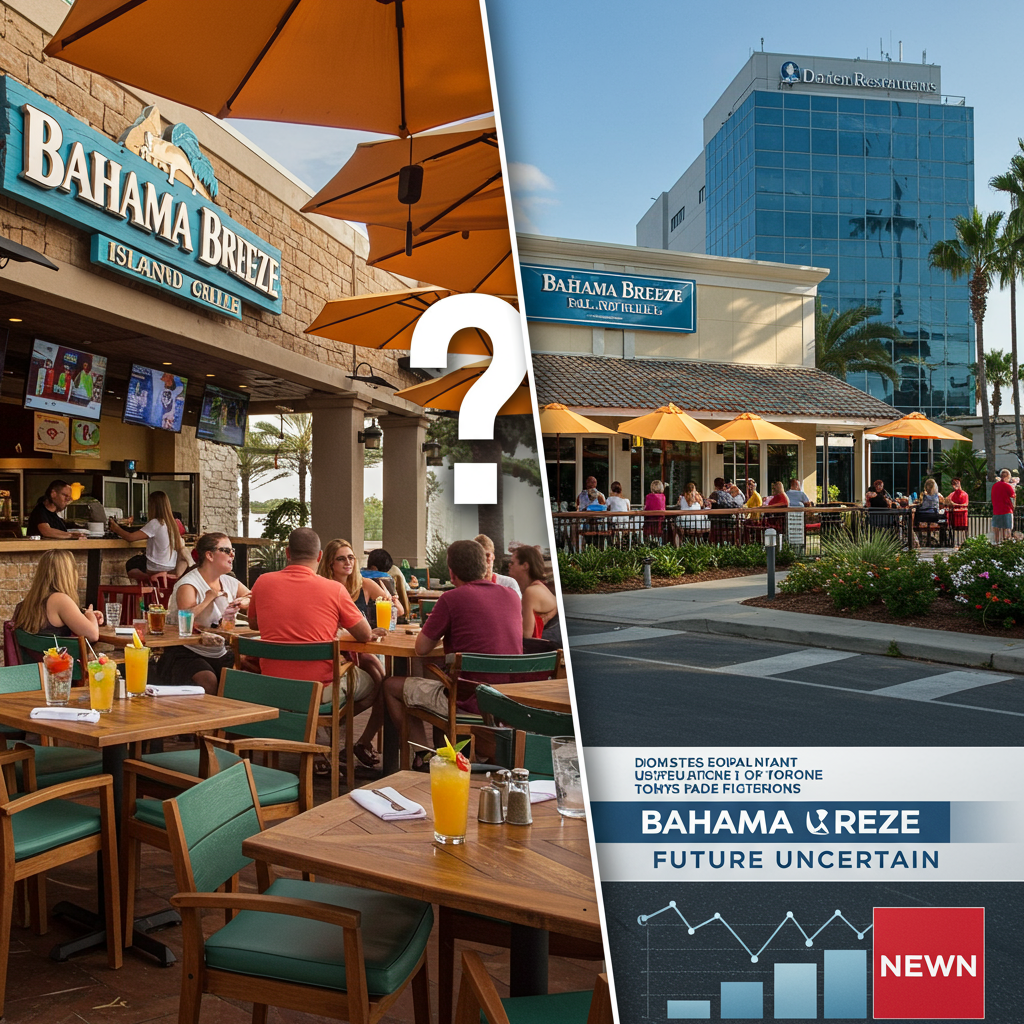A popular restaurant chain known for transporting diners to a tropical escape is facing an uncertain future. The parent company of Bahama Breeze Island Grille, Darden Restaurants, has announced plans to explore strategic alternatives, including potentially selling off all remaining locations.
This significant announcement comes roughly a month after Darden had already permanently closed 15 “underperforming” Bahama Breeze restaurants across multiple states, including Florida, Illinois, Massachusetts, Michigan, Nevada, New Jersey, and New York.
Why Darden is Exiting Bahama Breeze
Speaking on an earnings call, Darden Restaurants CEO Rick Cardenas confirmed the decision to immediately cease investment in all Bahama Breeze locations. He stated that the remaining restaurants are no longer considered a “strategic priority” for the company, which also owns well-known brands like Olive Garden and LongHorn Steakhouse.
Despite no longer fitting into Darden’s long-term strategy, Cardenas expressed belief that the Bahama Breeze brand and its unique concept could potentially thrive under new ownership. This led to the decision to seek “strategic alternatives” for the chain.
Bahama Breeze is recognized for its Caribbean-inspired menu, featuring dishes like Jamaican jerk wings, jerk chicken pasta, and handcrafted cocktail flights, all served in a vibrant, island-themed atmosphere.
The initial wave of 15 closures in May left 14 Bahama Breeze locations still operating. Darden’s announcement means the fate of these remaining restaurants hangs in the balance as the company seeks a buyer.
What Happens If No Buyer is Found?
Should Darden be unsuccessful in finding an interested buyer for the Bahama Breeze brand, the company indicated it might consider converting the existing locations into other Darden Restaurant concepts, such as Olive Garden or LongHorn Steakhouse.
A Broader Trend in the Restaurant Industry
Darden’s decision regarding Bahama Breeze is not an isolated event but rather reflects broader challenges currently impacting the restaurant industry. Numerous national chains have recently announced or undergone significant closures, citing a complex mix of economic pressures and shifting market dynamics.
Industry experts note that mid-chain restaurants, in particular, are feeling the pinch. Common reasons cited for widespread closures include:
Rising operational costs: Increases in food prices, labor wages, and overhead expenses are squeezing profit margins.
Labor shortages: Difficulty in finding and retaining staff remains a persistent issue for many operators.
Increased competition: The market is crowded, making it harder for some brands to stand out and maintain profitability.
Declining consumer spending: Some chains have seen a drop in customer traffic and spending power, partly attributed to inflation.
Examples of other major restaurant chains that have recently closed a significant number of locations include:
Denny’s: The breakfast chain has accelerated its closure plans, aiming to shut down up to 180 locations by the end of 2025. Denny’s CFO stated that these closures, often targeting older or unprofitable stores with expiring leases, are crucial for improving franchisee cash flow and strengthening the overall system.
Red Lobster: The seafood chain abruptly closed nearly 100 restaurants in May and subsequently filed for Chapter 11 bankruptcy to reorganize, facing significant financial struggles.
TGI Friday’s: Continues to shutter locations, including dozens in recent months, following a bankruptcy filing aimed at restructuring.
Applebee’s: Expects to close 20 to 35 locations in 2025, although the brand is also exploring strategies like co-branded locations with IHOP.
Noodles & Company: Anticipates closing 17 to 21 locations in 2025 after identifying underperforming spots contributing to operating losses.
Red Robin: Plans to close around 70 underperforming locations by 2030, with 10-15 scheduled for closure this year.
- Hooters: Filed for bankruptcy earlier in the year to address substantial debt, citing declining consumer spending and rising costs as contributing factors.
- www.the-sun.com
- tuscaloosathread.com
- wpst.com
- wcrz.com
- www.eatthis.com
Other chains like Wendy’s, Shake Shack, Rubio’s Coastal Grill, Cracker Barrel, and Outback Steakhouse have also undergone strategic or financially driven closures in the past year, highlighting the widespread nature of the challenges.
For Bahama Breeze, the coming months will be critical as Darden explores potential buyers and determines the final outcome for the remaining 14 island-themed restaurants.



